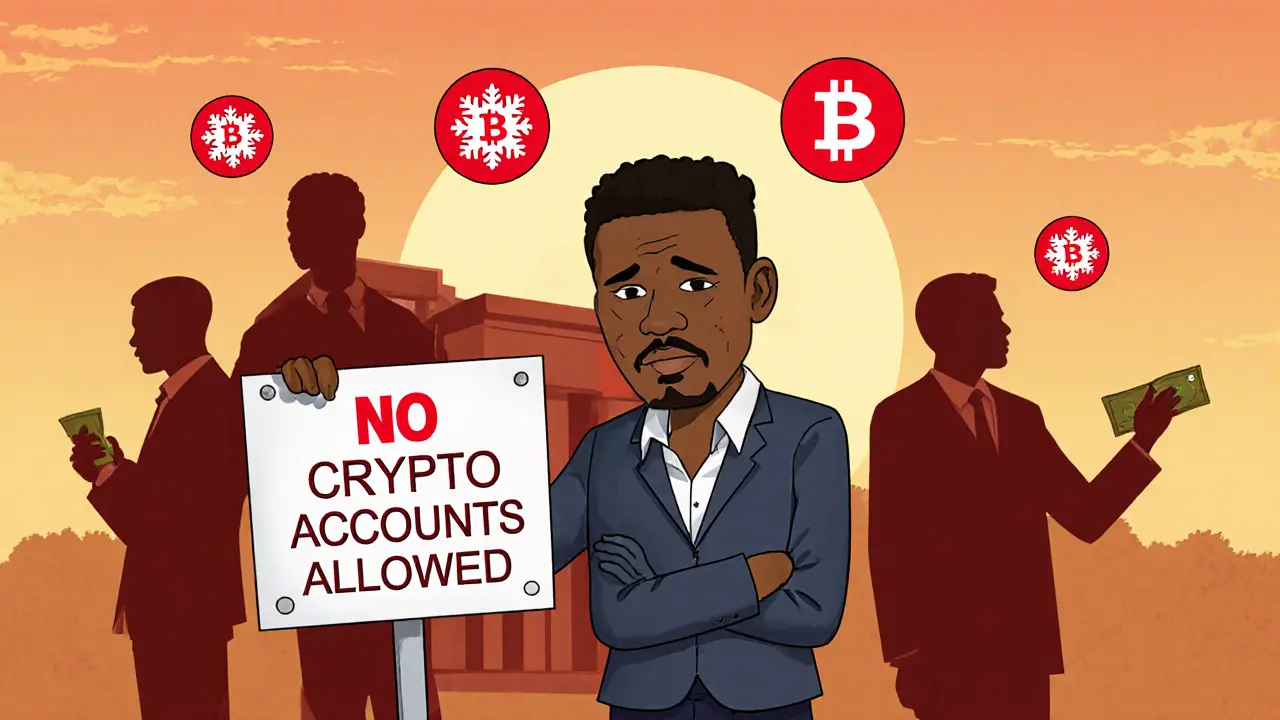Crypto Trader Bank Restrictions: Why Your Account Gets Frozen and How to Stay Legal
When you trade crypto, your bank might suddenly freeze your account—no warning, no explanation. This isn’t random. It’s crypto trader bank restrictions, rules enforced by financial institutions to avoid breaking anti-money laundering laws when dealing with cryptocurrency users. Also known as crypto banking blocks, these restrictions happen because banks are scared of regulators, not because you did anything illegal.
These blocks aren’t about your trading habits—they’re about the crypto AML, systems exchanges and banks use to track suspicious crypto movements. When you send funds to an exchange flagged by OFAC sanctions, U.S. government lists that block transactions with certain countries or entities, your bank gets an alert. Even if you’re in Germany, India, or Iran, your transaction might trigger a red flag. The bank doesn’t know if you’re buying Bitcoin for fun or helping someone evade sanctions. So they freeze everything to stay safe.
It’s not just about geography. If you use an unregulated exchange like KickEX or KoinBay, your deposits might look like high-risk activity—even if you’re just swapping tokens. Banks track transaction patterns. A sudden $5,000 transfer to a new crypto platform? That’s a red flag. So is withdrawing cash right after buying a low-liquidity coin like CHINU or BRETTA. Your bank doesn’t care if you’re a beginner or a pro. It only sees risk.
Some traders try to bypass these blocks with peer-to-peer trades or privacy tools. But that can make things worse. Using DEXs like Uniswap or Curve doesn’t hide you from banks—it just changes the path. If your bank sees your wallet sending funds to a DEX linked to sanctioned addresses, they’ll still flag you. The real solution isn’t hiding. It’s understanding what triggers the blocks and adjusting how you move money.
Germany’s BaFin and India’s FIU require exchanges to report large crypto transactions. China outright bans them. Iran’s traders face OFAC blocks that cut off access to major platforms. These aren’t isolated cases—they’re part of a global system designed to control crypto flows. You don’t need to be a criminal to get caught in the net. Just someone who uses a platform that’s not fully compliant.
What you’ll find below are real stories and guides from traders who’ve been blocked, banned, or confused by these rules. You’ll learn how exchanges like ZG.com and Betconix handle compliance, how Iranian traders use DAI on Polygon to stay active, and why some platforms get shut down for failing AML checks. You’ll see how the Travel Rule forces exchanges to share your personal info with other platforms—and why that makes banks nervous. And you’ll find out what steps actually work to keep your bank account open while still trading crypto safely.

3
Nov
Banking access for crypto traders varies wildly by country in 2025. Some nations block it entirely, while others like Liechtenstein and Germany offer clear pathways. Learn where you can bank legally-and where you’re on your own.
Read More
